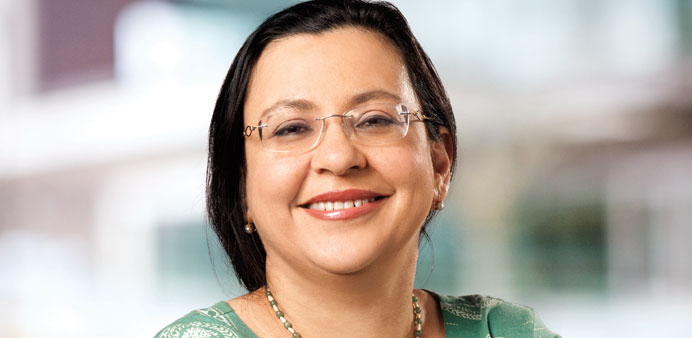By Anita Zaidi/Seattle
In far too many places around the world, the biggest child killers are caused by the smallest of organisms – the viruses, bacteria, and single cell parasites that cause diarrhoea and pneumonia. Given the monumental advances that have been made in public health – both diseases are preventable and curable – this is inexcusable.
It is imperative that all children, especially those most at risk, have access to life-saving healthcare services.
According to Unicef, pneumonia and diarrhoea kill a full one-quarter of the 5.9mn children under the age of five who die each year. And a new report from the International Vaccine Access Center shows that nearly three-quarters of pneumonia and diarrhoea deaths occur in just 15 countries. In these countries and elsewhere, such deaths are most prevalent within the poorest and most marginalised communities.
While the figures do reflect progress in recent decades, the tragedy is that the improvement could have been much larger, had governments not consistently succumbed to the temptation to focus on only one or two interventions at a time.
To end child deaths from these diseases once and for all, governments must commit to scaling up simultaneously the full suite of interventions identified by the World Health Organisation and Unicef two years ago, in their integrated Global Action Plan for Pneumonia and Diarrhea.
One critical – and extraordinarily cost-effective – intervention is the promotion of exclusive breastfeeding for the first six months of life, a practice that helps supports the development of a baby’s immune system.
As it stands, in 12 of the 15 countries suffering the most child deaths from pneumonia and diarrhoea, exclusive breastfeeding rates fall short of the WHO’s 50% global target.
Furthermore, governments must ensure that all children have access to life-saving vaccines. Though a vaccine for pneumococcal infection – a leading cause of pneumonia – was developed at the turn of the century, it is not included in routine immunisation programs in five of the countries where pneumonia is most pervasive (Chad, China, India, Indonesia and Somalia). This must change.
As for diarrhoea, a comprehensive global study found that moderate to severe cases are caused primarily by rotavirus, making that virus the leading killer of infants and toddlers worldwide.
But, though rotavirus vaccines have been rolled out in 79 countries – a significant accomplishment – a staggering 74% of the world’s infants remain unlikely to be inoculated this year. The vaccine’s introduction for Indian infants next year will be a major milestone.
But other Asian countries, such as Bangladesh and Pakistan, have not yet decided whether to do the same.
When children contract diarrhoea, they need access to the right treatments. Oral rehydration salts and zinc supplements not only drastically reduce mortality rates; they are also inexpensive to scale up. In treating pneumonia, access to antibiotics is essential.
The common denominator among these interventions is the need for sufficient well-trained health workers serving impoverished communities.
Indeed, health workers are needed to guide mothers as they attempt to breastfeed – which is not always as easy as it sounds – and reinforce the importance of the practice. They are needed to deliver vaccines and treatments.
And they are needed to dispense advice to families on how to protect their children from death by pneumonia, diarrhoea, and other diseases, including through information about when to seek care if they do.
Governments have a pivotal role to play in ensuring that the poorest and most marginalized communities have access to critical health services, by providing the right training, tools, supervision, funding, and logistical support for health workers.
This – together with other critical interventions, such as the provision of clean water and effective sanitation facilities – will require a strong and sustained political commitment, one that civil society and the media, by keeping their governments accountable, can help to secure.
There are still far too many children around the world who do not have access to the essential health services they need to survive and thrive.
Accelerating the discussion of proven, low-cost methods to prevent, treat and cure pneumonia and diarrhoea is critical to give all children the chance they deserve. Where you live should not determine whether you live. - Project Syndicate
- Anita Zaidi is director of the Enteric and Diarrhoeal Diseases programme at the Bill & Melinda Gates Foundation.

